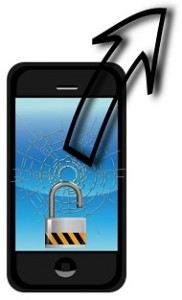Blackberry’s latest update to its popular app has been designed to boost its privacy level.
BlackBerry has recently announced that the latest update to the BBM Messenger, across the versions for BB10, iOS, and Android devices, has been launched in order to help to enhance the mobile security level that will protect the privacy of the users.
A new feature has become a central part of the update to the smartphone app, specifically aimed at privacy.
The company has decided to add the additional security feature as a part of the premium components of the app. This mobile security addition can be purchased for a monthly or annual subscription fee. It provides BBM Messenger users with access to a range of features that will include the ability to send a timed message that will self destruct once it has been read, as well as the opportunity to stop their sender details from being revealed on the interface.
Among the more appealing of these mobile security features for BBM Messenger is to retract a mistakenly sent message.
 This would mean that if a message was sent to the wrong recipient, by accident, or if the mobile app user changes his or her mind about the message that was sent, it is possible to retract it as long as the recipient has not yet seen it.
This would mean that if a message was sent to the wrong recipient, by accident, or if the mobile app user changes his or her mind about the message that was sent, it is possible to retract it as long as the recipient has not yet seen it.
The users of the free BBM Messenger service won’t be without the additional mobile privacy features. However, theirs will be limited when compared to the ones that will be offered with the premium subscription. For instance, people who are using the free app will still be able to send timed messages that will self destruct.
However, they will not have access to the additional feature that allows them to keep their user details a secret from those with whom they are communicating. Furthermore, it continues to allow recipients to take screenshots that could be saved as evidence, potentially negating the benefit of the self destructing timed messages.
The retracted messages are also a mobile security feature that will be saved exclusively for those who will be using the service through a paid subscription.
The vulnerability that has been identified in some of the tech companies handsets could affect up to 600 million.
The mobile security news involving a flaw in many Samsung smartphones is spreading around the globe as estimates have stated that this issue could impact as many as 600 million people worldwide.
The mobile technology flaw could potentially allow Samsung Galaxy users to be spied upon by hackers.
The phones that could be impacted by the mobile security issue include the Samsung Galaxy S4, S4 Mini, S5 and S6. It comes in the form of a vulnerability that could make it possible for hackers to gain access to the microphone and camera on the device and to spy on users.
According to Buster Johnson of the National Association of Counties Cyber Security Task Force Team, “Hackers will basically be able to take control of a person’s cell phone and have the possibility of accessing a person’s personal information stored on their phone, which could include bank account passwords and other sensitive data.”
This suggests that the mobile security flaw could place users at a greater threat than just their privacy.
 Data and identity theft as well as financial issues could also be thrown into the mix if the wrong information is accessed by the wrong people.
Data and identity theft as well as financial issues could also be thrown into the mix if the wrong information is accessed by the wrong people.
The smartphone security flaw was first identified by researcher Ryan Welton of NowSecure, back in 2014. Shortly thereafter, the security teams at both Google Android and at Samsung were notified of the problem.
The NowSecure blog includes a post from Welton that explained that the source of the vulnerability is in the Swift keyboard, which is pre-installed on the majority of Samsung devices. It is not possible for a user to disable or uninstall it, and its updates occur automatically on their own or when the device has been rebooted.
The mobile security problem comes into play when that update occurs, because the method of fetching the update is not secure if a hacker has access to the network traffic of the device user, for instance, in the case of a public WiFi hotspot. The attacker could use that unsecure network to pose as a server for Swiftkey and then exploit the update, executing a code that would give the hacker privileged user access to the device.
 This would mean that if a message was sent to the wrong recipient, by accident, or if the mobile app user changes his or her mind about the message that was sent, it is possible to retract it as long as the recipient has not yet seen it.
This would mean that if a message was sent to the wrong recipient, by accident, or if the mobile app user changes his or her mind about the message that was sent, it is possible to retract it as long as the recipient has not yet seen it.
 Data and identity theft as well as financial issues could also be thrown into the mix if the wrong information is accessed by the wrong people.
Data and identity theft as well as financial issues could also be thrown into the mix if the wrong information is accessed by the wrong people.